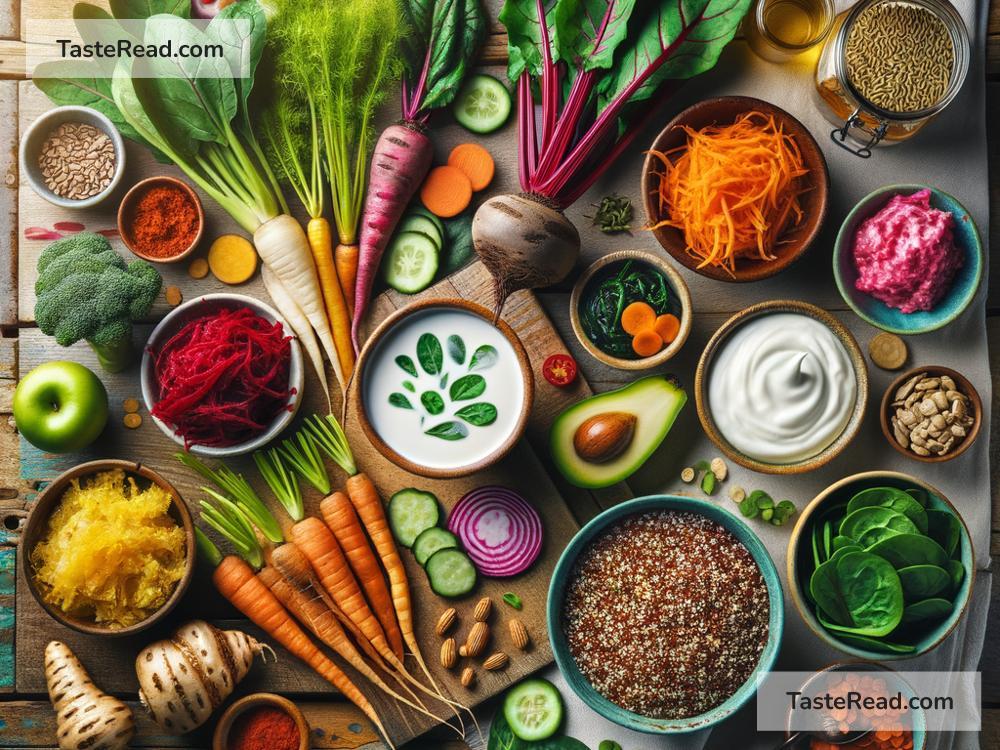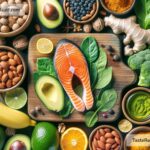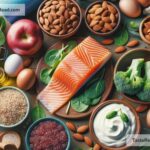Foods That Enhance Colon Health: Simple Tips for a Happier Gut
Your colon, also known as the large intestine, is a key part of your digestive system. It does more than just process food; it plays an important role in your overall health, including hydration, nutrient absorption, and even boosting your immune system. Taking care of your colon starts with what you eat. In this blog, we’ll explore simple, healthy foods that keep your colon happy and functioning smoothly.
Why Colon Health Matters
Your colon is responsible for removing waste from your body and absorbing water and electrolytes. If your colon isn’t working properly, you might experience issues like constipation, bloating, or even more serious conditions like colon cancer. The good news? Eating the right foods can go a long way toward keeping your colon healthy and strong.
Fiber: The Colon’s Best Friend
One of the most important nutrients for colon health is fiber. Fiber adds bulk to your stool, helps it pass more easily through your digestive system, and promotes regular bowel movements. A diet high in fiber can even lower the risk of developing colon cancer.
Some great sources of fiber include:
-
Whole Grains: Brown rice, oats, quinoa, and whole wheat bread are rich in fiber. Swap white bread and pasta for whole grain versions to give your colon a boost.
-
Fruits: Apples, pears, bananas, and berries (like strawberries and raspberries) are packed with fiber. Don’t peel your apples or pears—the skin contains even more fiber!
-
Vegetables: Broccoli, carrots, spinach, and Brussels sprouts help with digestion and keep your colon clean. Cruciferous vegetables like broccoli contain compounds that may also protect against colon cancer.
-
Legumes: Beans, lentils, and chickpeas are excellent sources of fiber. Add them to your salads, soups, or stews for a hearty, colon-friendly meal.
Hydration Supports Colon Function
Fiber needs water to work properly—otherwise, you might end up constipated. Staying hydrated helps your colon process waste more efficiently. Drink at least 8 glasses of water a day, and eat water-rich foods like cucumbers, watermelon, and celery.
Pro tip: Avoid sugary drinks like soda or fruit juices with added sugar. Instead, stick to water, herbal teas, or sparkling water as healthier hydration options.
Probiotics: Good Gut Bacteria
Your colon thrives when it’s full of healthy bacteria. Probiotics are live microorganisms (good bacteria) that help keep your gut balanced. A healthy gut can aid digestion and prevent issues like inflammation.
Foods rich in probiotics include:
-
Yogurt: Plain, unsweetened yogurt with live cultures is one of the best sources of probiotics. Look for “active and live cultures” on the label to ensure you’re getting the right kind.
-
Kefir: This fermented milk drink is a probiotic powerhouse. It’s similar to yogurt but has a tangy taste and extra probiotics.
-
Fermented Vegetables: Sauerkraut, kimchi, and pickles are excellent sources of probiotics. Just make sure they’re naturally fermented (not the ones preserved with vinegar).
Foods Rich in Antioxidants
Antioxidants are compounds that protect your cells from damage caused by harmful molecules called free radicals. They can help reduce inflammation and lower the risk of colon problems.
Antioxidant-rich foods include:
-
Leafy Greens: Spinach, kale, and Swiss chard are loaded with nutrients that support colon health.
-
Berries: Blueberries, blackberries, and raspberries are not only delicious but also packed with antioxidants. Sprinkle them in your cereal or snack on them plain.
-
Green Tea: Swap your daily coffee for a cup of green tea—it’s full of antioxidants and beneficial for your gut.
Healthy Fats for Colon Health
Not all fats are bad! Certain healthy fats can reduce inflammation in your gut and support digestion.
-
Avocado: This creamy fruit contains healthy monounsaturated fats that are great for your colon. Spread it on toast or add slices to your salad.
-
Nuts and Seeds: Almonds, walnuts, chia seeds, and flaxseeds are rich in omega-3 fatty acids, which promote overall gut health.
-
Fatty Fish: Salmon, mackerel, and sardines contain omega-3 fatty acids that can reduce inflammation in the colon.
Foods to Limit or Avoid
Just as certain foods help your colon, others can harm it. Try to limit these in your diet:
-
Processed Foods: Fast food, chips, and packaged snacks often contain additives and preservatives that irritate your colon.
-
Red Meat: Consuming too much red meat can increase the risk of colon issues. Aim for lean proteins like chicken or fish instead.
-
Sugary Desserts: Excess sugar can harm the balance of bacteria in your gut. Choose fruit or dark chocolate for a healthier treat.
Small Changes, Big Impact
Improving your colon health doesn’t take a complete overhaul of your eating habits. Start small—add an extra serving of vegetables to your meals, swap white bread for whole grain, or snack on a handful of almonds. Over time, these changes can make a big difference.
By eating fiber-rich foods, staying hydrated, adding probiotics to your diet, and choosing healthy fats and antioxidants, you’re giving your colon the tools it needs to stay healthy. A happy colon equals a happier you!
Keeping your colon healthy is easier than you think. Treat it kindly with nourishing foods, get moving with regular exercise, and stay hydrated. With these simple tips, you can enjoy better digestion, more energy, and a healthier future.


